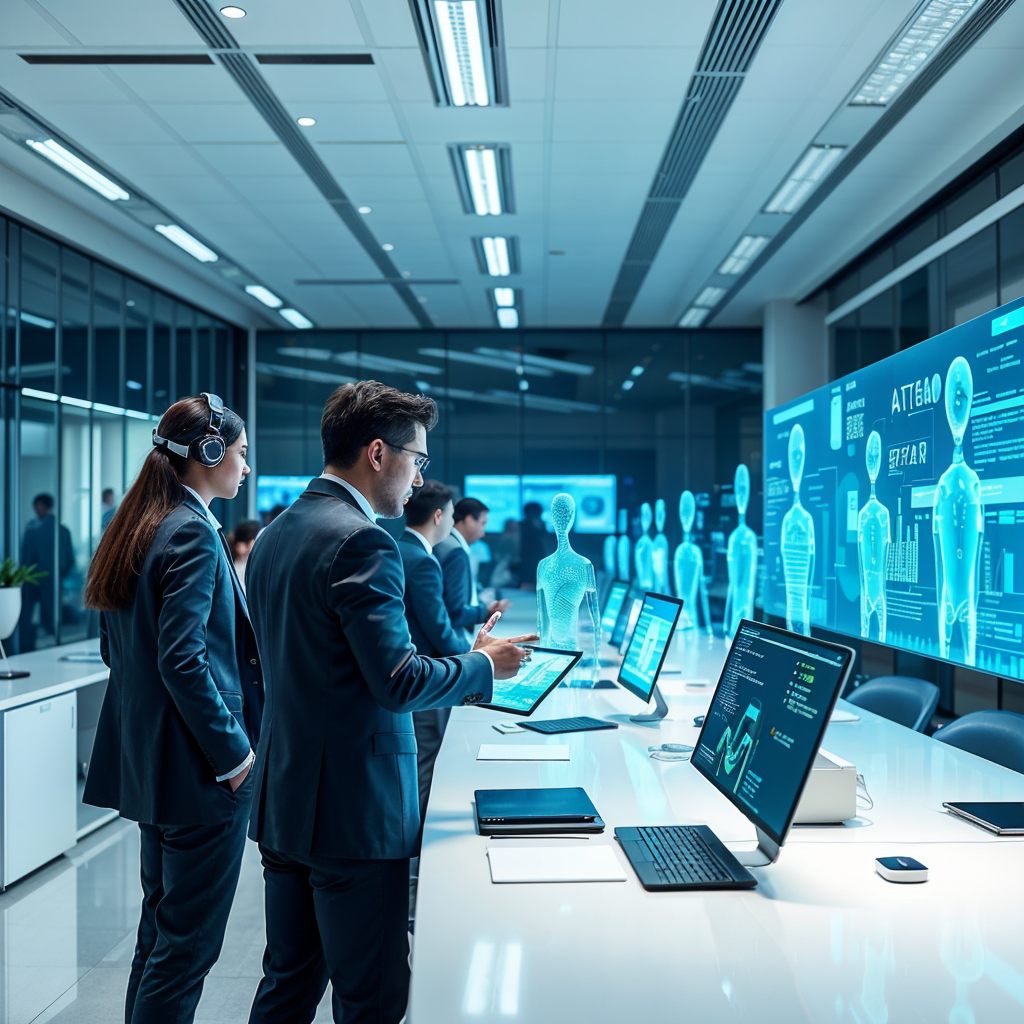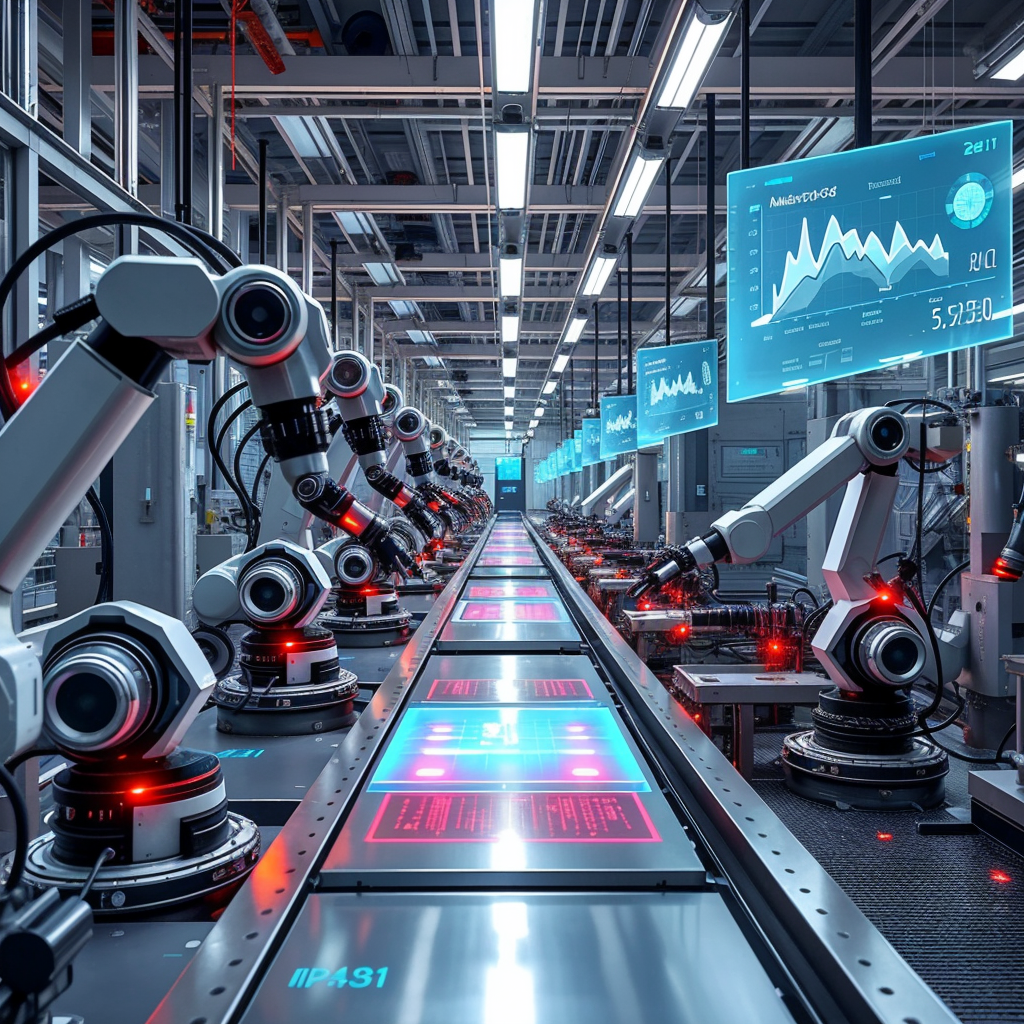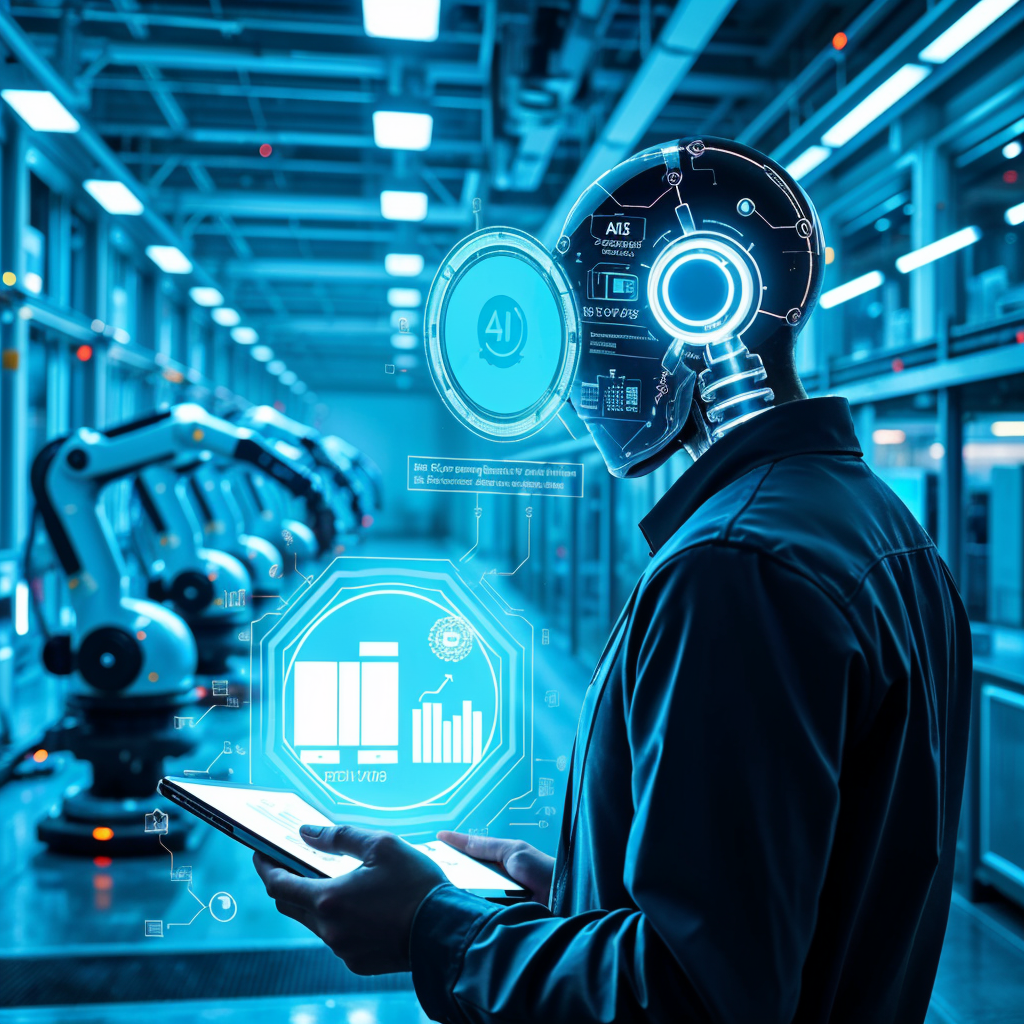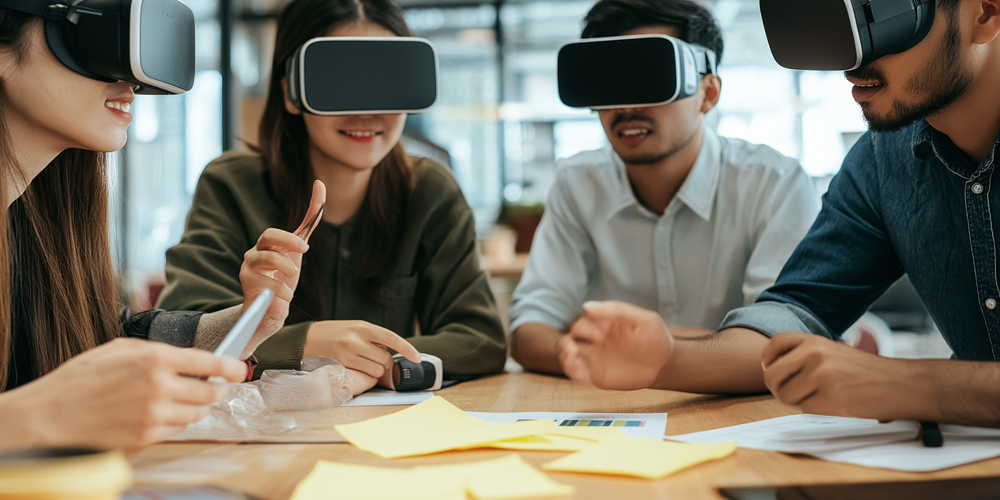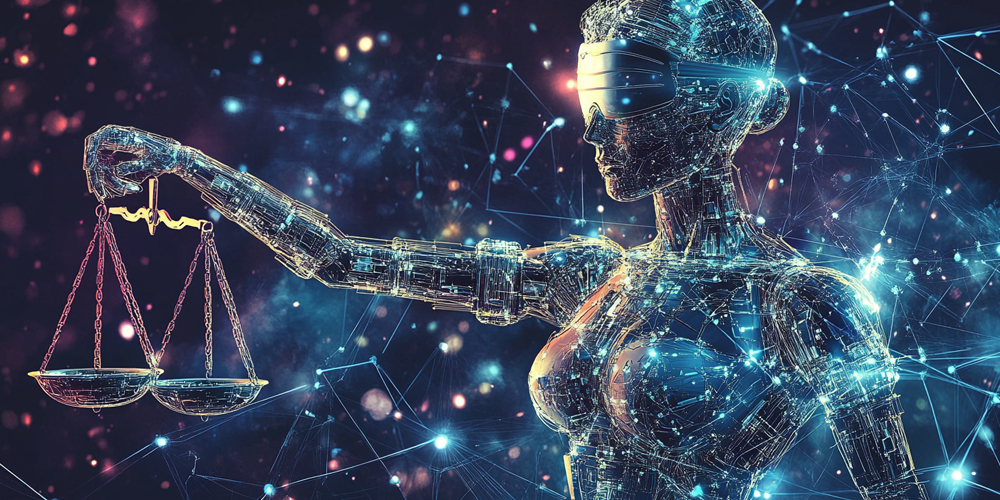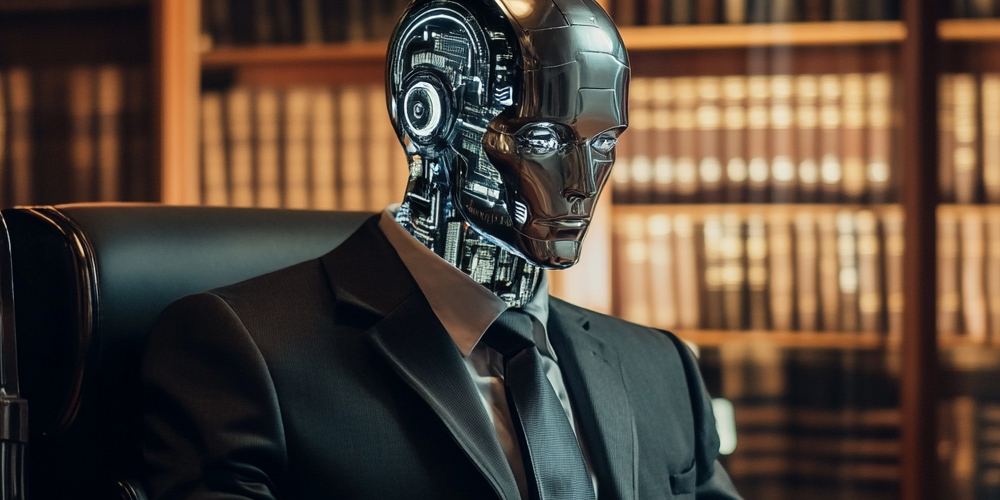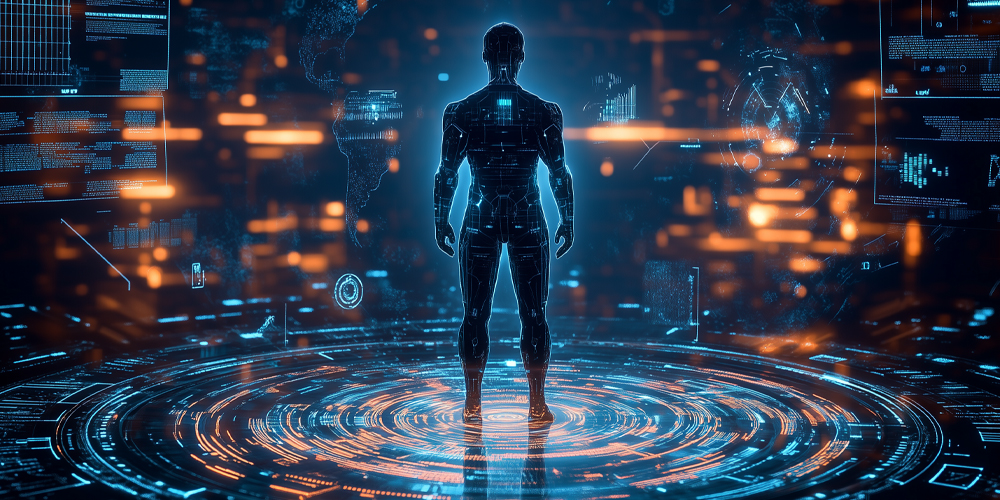Artificial intelligence (AI) is no longer a concept of the future—it’s here, and it’s rapidly transforming various aspects of our lives. From industries like healthcare and manufacturing to the way we interact with technology in our daily lives, AI is reshaping the world in ways that were once unimaginable. In this article, we will explore how artificial intelligence is impacting industries and our daily routines, and what the future holds for this revolutionary technology.
What Is Artificial Intelligence?
Artificial intelligence refers to the ability of machines and systems to perform tasks that would typically require human intelligence. These tasks include learning, reasoning, problem-solving, and understanding language. The development of AI has come a long way, with systems becoming increasingly capable of mimicking human decision-making and improving over time through machine learning algorithms.
AI is divided into two main types: narrow AI and general AI. Narrow AI is designed to perform specific tasks, such as facial recognition or language translation. General AI, on the other hand, would have the ability to perform any cognitive task that a human can do. While general AI is still in the research phase, narrow AI is already being implemented across various industries.
Artificial Intelligence in Healthcare
One of the most promising areas where AI is making an impact is healthcare. AI-powered tools are transforming how healthcare professionals diagnose, treat, and manage diseases. For instance, AI can analyze large datasets from medical records and research to identify patterns, which allows doctors to make more accurate diagnoses.
In medical imaging, AI systems are being used to detect early signs of diseases such as cancer. These systems can analyze X-rays, MRIs, and CT scans much faster than human radiologists, identifying anomalies that might be missed by the human eye. The use of AI in healthcare is not only speeding up diagnosis but also improving accuracy.
AI in Drug Discovery and Development
The drug discovery process is notoriously long and expensive. However, with the help of AI, pharmaceutical companies can now analyze data more efficiently and identify potential drug candidates much faster. AI can predict how different compounds will interact with human biology, reducing the time it takes to bring new drugs to market.
AI systems are also helping researchers identify new uses for existing drugs, a process known as drug repurposing. This can be especially useful in finding treatments for rare diseases or conditions that currently lack effective therapies.
Challenges in AI-Powered Healthcare
While AI offers numerous benefits to the healthcare industry, it also comes with challenges. Data privacy and security are major concerns, as medical data is highly sensitive. Moreover, the integration of AI systems into healthcare practices requires training for medical professionals and regulatory approvals to ensure the safety and efficacy of AI-driven solutions.
AI in Manufacturing
The manufacturing sector has been revolutionized by the integration of artificial intelligence. AI-powered robots and automation systems are increasing efficiency, reducing human error, and enhancing safety in manufacturing environments.
One of the key areas where AI is being implemented is in predictive maintenance. AI systems can monitor machinery in real-time, predicting when a machine is likely to fail and scheduling maintenance before any issues arise. This not only minimizes downtime but also reduces the cost of repairs.
AI and Robotics in Manufacturing
Robots powered by AI are taking over repetitive and dangerous tasks, allowing human workers to focus on more complex responsibilities. These AI-driven robots are capable of learning from their environments, adapting to changes in real time, and even collaborating with human workers in a process known as “cobotics.”
Impact of AI on the Workforce
While AI is improving productivity in manufacturing, it is also raising concerns about job displacement. As machines become more capable of performing tasks traditionally done by humans, there is a growing need for workers to upskill and adapt to the changing landscape. However, AI also creates new opportunities for employment, particularly in roles that involve managing, programming, and maintaining AI systems.
Artificial Intelligence in Daily Life
AI has also become an integral part of our daily lives, often in ways we might not even notice. From virtual assistants like Amazon Alexa and Google Assistant to personalized recommendations on streaming platforms like Netflix, AI is seamlessly integrated into many of the technologies we use every day.
AI in Personal Devices
Many smartphones now come with built-in AI features that enhance user experience. Facial recognition, voice commands, and predictive text are all powered by artificial intelligence. These features not only make our lives more convenient but also improve security, such as through biometric authentication systems.
AI in Smart Homes
Smart home devices are becoming increasingly popular, with AI playing a crucial role in their functionality. AI-driven devices such as smart thermostats, lights, and security cameras learn from user behavior to optimize energy consumption, improve security, and provide convenience. For example, a smart thermostat can learn your daily routine and adjust the temperature accordingly, saving both energy and money.
The Future of AI in Transportation
One of the most exciting developments in AI is its role in the future of transportation. Self-driving cars, once considered science fiction, are now being tested and developed by companies like Tesla and Waymo. These autonomous vehicles rely on AI to make split-second decisions, navigate complex roadways, and avoid accidents.
In addition to self-driving cars, AI is also playing a role in optimizing public transportation systems. AI algorithms can analyze traffic patterns and adjust routes in real-time to reduce congestion and improve efficiency.
Challenges in AI-Driven Transportation
While the potential benefits of AI in transportation are significant, there are still hurdles to overcome. Ensuring the safety and reliability of self-driving vehicles is a top priority, and there are also legal and ethical concerns that need to be addressed before AI-driven transportation becomes mainstream.
Artificial Intelligence and Ethics
As AI continues to advance, it raises important ethical questions. One major concern is the potential for bias in AI systems. Since AI systems learn from data, any biases present in the data can be reflected in the system’s decisions. For instance, facial recognition technologies have been shown to have higher error rates when identifying people of color, leading to concerns about fairness and discrimination.
There are also concerns about the impact of AI on privacy. AI systems often require large amounts of data to function effectively, which can put user privacy at risk. Regulations like the General Data Protection Regulation (GDPR) aim to protect users’ rights, but the rapid development of AI presents challenges for maintaining privacy.
The Importance of Ethical AI Development
Ensuring that AI is developed ethically is crucial to its long-term success. This includes addressing bias, ensuring transparency in decision-making, and implementing safeguards to protect privacy. Governments, companies, and researchers are all working to develop frameworks that ensure AI is used responsibly.
What Does the Future Hold for AI?
The future of AI is bright, with endless possibilities for innovation across industries. As AI continues to evolve, it will become more integrated into both our professional and personal lives. However, this growth must be managed carefully to ensure that the technology benefits everyone and does not lead to unintended consequences.
Key Trends to Watch
Some of the key trends shaping the future of AI include:
– AI-Powered Personalization: Companies will continue to use AI to provide highly personalized experiences for their customers, from targeted advertising to custom product recommendations.
– AI in Healthcare: The use of AI in healthcare will expand, with even more sophisticated tools for diagnosis, treatment, and patient care.
– AI and Sustainability: AI will play a significant role in addressing environmental challenges, such as optimizing energy use and reducing waste.
Conclusion
Artificial intelligence is transforming industries and our daily lives in profound ways. From improving healthcare outcomes to revolutionizing transportation, AI is reshaping the world as we know it. While there are challenges and ethical concerns to address, the potential benefits of AI are immense. As we look to the future, it’s clear that AI will continue to be a driving force of innovation, offering new possibilities for how we live and work.
By staying informed about the latest developments and being mindful of the ethical implications, we can ensure that AI’s future is both promising and responsible.
